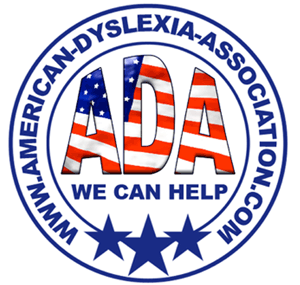The 4th Industrial Revolution needs Dyslexic Thinkers to Close the Talent Gap by Glenn Marshall
The 4th Industrial revolution with advanced technology and increased connectivity has created new industries, new business models, new jobs, and entirely new skills. Deloitte and The Manufacturing Institute skills gap study reveals that a talent shortage may leave an estimated 2.4 million positions unfilled between 2018 and 2028.
America needs more creative out of the box thinkers to make sense of the changes and disruptions of the digital age. The need for dyslexic thinking will require more of the likes of Henry Ford, Steve Jobs, Bill Gates, Thomas Edison and Alexander Graham Bell all were innovative thinkers and businessmen who were dyslexics.
Dyslexia, also known as reading disorder, is characterized by trouble with reading despite normal intelligence. Julie Logan, emeritus professor of entrepreneurship at Cass Business School research showed that 35% of US company founders identified themselves as dyslexic, compared with 15% in the general population.
People with dyslexia tend to compensate for things they can’t do well by developing excellence in other areas: oral communication, as well as problem-solving and people management. Dyslexia, in some way shape or form, is linked to this creative business phenomenon, and Prof. Logan backs up Gallup’s assertion that “great entrepreneurs are creative thinkers”.
Dyslectics are visual thinkers who process information through images rather than words. According to Ronald Davis, a dyslexic and author of “The Gift of Dyslexia,” verbal thinkers process about five words per second compared to dyslectics who conceptualize 32 images. Davis and others believe picture or visual thinking gives dyslectics the ability to quickly understand how thing work, a significant advantage in manufacturing.
Struggling Readers and Technology
The National Assessment of Educational Progress (NAEP) rated 37% of fourth-graders, 36% of eighth-graders and 37% of 12th-graders as “proficient” or “advanced” in reading. Two-third of students who cannot read proficiently by the end of 4th grade will end up in jail or on welfare
It is estimated that one in five students has dyslexia, yet there are likely far more who have not yet been identified in today’s classrooms. The good news is research has shown that 95% of all children can be taught to read.
To address these challenges to assist struggling readers with dyslexia. Microsoft is the first company to sign the Made by Dyslexia pledge: to give the 700 million people with dyslexia around the world access to technology that empowers them to excel in their academic journey, and in life. The pledge calls on partners to build a better future for those with dyslexia and, together with Made by Dyslexia, aim to democratize dyslexia support, so that every dyslexic child is understood and given the right support to realize their brilliant potential.
Microsoft has developed Microsoft Education training materials , research and products that support dyslexic students. Products like Learning Tools are free to educators and students and are already helping more than 14 million people improve their reading and writing comprehension.
Unlocking Potential of Dyslexic Thinkers
Top selling business author Malcolm Gladwell points out in his book, David & Goliath, that a larger than normal percentage of successful businesspeople are dyslexics. Proving that “one man’s disadvantage is another man’s advantage”.
Students with dyslexia and other learning challenges have great potential. Indeed, a list of creative producers across disciplines talk about their difficulties in school and their struggle to find themselves. They all agree that the struggle made them stronger and helped them find their unique niche in the world. In fact, more and more researchers are claiming that dyslexics have unique sets of talents that make them great at what they do.
Employers are facing a growing talent shortage to be competitive in 4th Industrial Revolution that can be addressed by these capable and gifted individuals. Who can play a lead role in making “Made in America” and the “American Dream” a reality, for all!
To address these opportunities and challenges the Association for Manufacturing Excellence (AME) and the San Antonio Manufactures Association (SAMA) is holding a summit May 9-10, 2019, in San Antonio for business, educators and community leaders to learn how to graduate career-ready citizens while retooling the current work force for success in the 4th Industrial Revolution for more information go to http://www.ame.org/event/san-antonio-2019-summit.
by Glenn Marshall
Leading A Manufacturing Renaissance
Association for Manufacturing Excellence
www.ame.org







